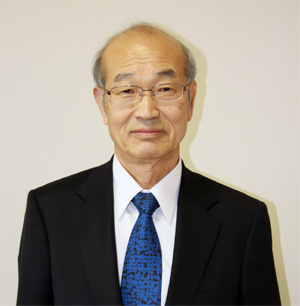There were three big happenings in succession in November. The first was the release of the GDP (first preliminary figures) for the July-September 2014 period on the 17th. Real GDP fell even further than in the April-June period, when it had dropped significantly due to the impact of the consumption tax hike. The seasonally adjusted figures for the April-June period were down 1.9% compared to the previous quarter. Consumer spending in particular fell by 5%. On an annualized basis, this works out to a decrease of 20%.
Because the drop was so large, experts expected that there would be a rebound and a reasonable positive growth in the July-September period. However, contrary to expectations, the actual figures showed a negative growth of 0.4%. It is safe to say that no economists had predicted negative growth. I was really surprised too. The sharp decline in inventory investment by private companies had a major impact, but it is hard to believe that corporate business confidence has deteriorated so much with the yen continuing to weaken.
The second unexpected development was that Prime Minister Abe, seeing these results, postponed the second consumption tax hike, which was scheduled for October next year, until the spring of 2017. It is true that the pace of economic recovery has been more shaky than expected, but considering that the US economy remains strong and therefore the yen is likely to remain weak, the risk of the economy worsening further heading into next year is probably quite small. Given this, it is incomprehensible that he has so quickly announced a policy to postpone the second tax hike next year, which is written into law.
The third point is that at the same time, they decided to dissolve the House of Representatives. It was done so quickly, as if it was planned. I think there is some truth to the idea that the opposition parties' real purpose was to cover up scandals within the cabinet.
Now, let's consider the problems associated with postponing the planned consumption tax hike. Since the Koizumi administration, the indicator for fiscal reconstruction has been the primary balance (basic fiscal balance). The primary balance is the balance that would remain if expenditures other than the payment of principal and interest on government bonds (interest + redemption amount) were covered by tax revenue alone. The government has set a goal of fiscal reconstruction of reducing the ratio of this primary balance to GDP by half in fiscal 2015 from the actual figure in fiscal 2010 (minus 6.6%), and achieving a surplus in fiscal 2020.
In July, the Cabinet Office published the results of a calculation based on the assumption that Abenomics will be successful and that the growth rate will be able to be maintained at 3% nominal and 2% real (economic recovery case). The results show that even in this case, it will be difficult to achieve the target of a surplus in fiscal 2020 (minus 1.8% in fiscal 2020). Moreover, the assumption in the economic recovery case includes another increase in the consumption tax. This incident has undermined this assumption. It seems that the fiscal reconstruction targets that have been set up until now will have to be abandoned.
The question is what will happen if fiscal reconstruction is delayed. Economics textbooks say that if fiscal deficits continue, it will restrict the funds available for future capital investment by private companies, slowing the economy's growth potential. We have already explained in this column that raising productivity is a prerequisite for maintaining growth in a declining population. If fiscal deficits restrict corporate capital investment, productivity will not increase. This is the point of greatest concern.
(Diary entry dated November 27, 2014)

[Profile of Shigeo Uchida]
Born in 1941. Graduated from the Faculty of Economics at Keio University in 1965 and joined the Nihon Keizai Shimbun. After working in the Securities Department of the Editorial Department, the Japan Center for Economic Research, head of the Securities Department at the Tokyo Head Office and as an editorial writer, he is currently Managing Director the Chiba Gakuen School Corporation and Professor Emeritus Chiba University of Commerce.
<Major publications>
"Seminar: Introduction to the Japanese Economy" (co-author, Nihon Keizai Shimbun)
"Showa Economic History (Part 2)" (co-author, Nihon Keizai Shimbun)
"The New Japanese Economy" (co-author, Nihon Keizai Shimbun)
"History of Japanese Securities 3", "Now You Can Understand! How the Japanese Economy Works" (sole author, Nihon Keizai Shimbun Inc.), and others